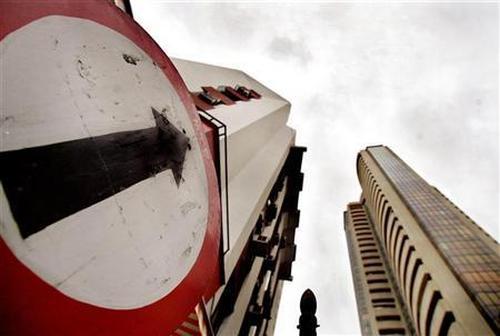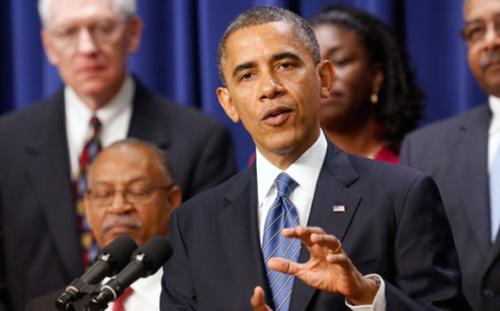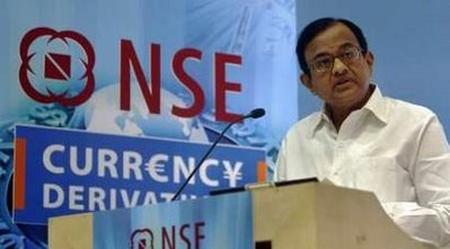
The writer believes that the current stock market rally will continue until early 2013. He predicts this based on partial success of current Parliament session, resolution of US' fiscal cliff, and government disinvestment. To make the rally last longer, he says government will need to go for radical steps such as disinvestment of SUUTI.
It is perhaps mandatory in one's last column for the year to make a forecast for the year ahead, and I will give it my best shot.
I would argue that conditions are in place for the financial markets to sustain their current rally in early 2013 (with some corrections here and there), should we manage to successfully navigate the "event risks" of the next couple of weeks.
How long this bounce will sustain itself, and whether we build the foundations of a longer-term bull market, depends on how other risks pan out over the year.
My prognosis is based on what I would call educated optimism. Of course if things go wrong, the optimism might not turn out to be that educated after all.
First, it seems likely now that the winter session of Parliament will not be entirely paralysed and some legislation is possible in this short session.
The United Progressive Alliance seems more confident in its abilities to manage the floor of the House, and I am assuming that when the issue of foreign direct investment (FDI) in India's supermarkets is put to the vote, it will pass with a majority in both Houses.
...

Whether the markets will be appeased with this alone and run up further remains to be seen. Some would argue that the passage of "FDI in retail" has already been priced in by the markets in the recent rally.
They also argue that Bills like the new Companies Bill or the Forward Contracts (Regulation) Act, which are somewhat non-controversial and are hence likely to be legislated should Parliament function, are too innocuous to tickle the market's fancy.
Their claim is that the next litmus test for the government would be whether or not the investment limits in the insurance are raised. I don't have a strong opinion on this.
All I am assuming is that the winter session, if and when it actually gets going, will be neutral to somewhat positive for the financial markets.
The next big driver for local markets (assuming that Parliament doesn't poop the party) would be the resolution of the fiscal cliff in the US by the end of December, perhaps in the third week of December itself.
Let me be honest and confess that I don't know enough about US politics to understand the nuances of how exactly a deal will be struck. I am simply going by what some US watchers are saying - that US legislators are not daft enough to risk another recession.
There could be two possible solutions. One could be a grand bargain between Democrats and Republicans in which the majority of the tax-and-spend issues-related to the cliff are resolved in one shot.
The second could be one in which some of the tax exemptions are extended and the US Congress decides to kick the can down the road, retain the status quo on expenditure and entitlements, and agree to negotiate these later in the year.
...

Whatever the form of the resolution is, it is likely to induce a risk-on phase in the global markets. The Indian markets (for debt, equity and the rupee) are likely to benefit from anti-dollar, pro-risk capital flows. The trick then is to take advantage of this and ensure that this rally is sustained for a while.
How is that possible? The next thing that the financial markets will start fretting about is whether the government will be able to reach its fiscal deficit targets for 2012-13.
Disinvestments are critical to this. So if the markets indeed sustain their up-move, the government should sell its shares of the identified public sector undertakings (PSUs) into this rally.
Successful disinvestment requires both nimbleness and caution. If market conditions are right, the government should stop shilly-shallying over whether the sale price for a PSU share is below its "optimal price" or not, and instead settle for whatever it can get in the circumstances.
That said, it is important to ensure that it avoids extreme oversupply in a particular week or fortnight. If the supply of public sector paper is seen to crowd out the markets, it could set off a vicious cycle that could end in the equity rally sputtering out.
The government should also spread its bets. If it is seen to depend excessively on disinvestment, the bears in the market could start baiting the government and attempt to dampen the rally.
This could raise doubts about the disinvestment process itself and the fate of fiscal consolidation. To avoid this, the government should signal to the market that it has alternatives to fall back on.
...

At this stage, simply harping on expenditure reduction as a way to get to the deficit target will not help; nor will a commitment to re-auction telecom spectrum, given that there are just a couple of months to go before the Budget.
The government has to start talking about some of the "extraordinary" items that could help close the fiscal gap.
This includes selling its stake in the UTI subsidiary (SUUTI) and perhaps even doing a quick sale of government land. These are, incidentally, options identified by the Kelkar committee.
I will not digress further and will get back to the question of how long this rally will last. Europe's problems are far from over and the policy responses from the region's policy makers are falling increasingly short of expectations (the idea of a centralised deposit insurance facility, for instance, has been taken off the agenda for a banking union).
German elections are due in 2013 and the possibility of a change in leadership could lead to doubts about the continuity of Europe's policy stance. If the fiscal problem in the US persists, it could trigger periodic panic attacks.
On the domestic front, jitters about the 2014 general elections will start getting priced in by the middle of next year. I am, thus, putting my money on an early rally in 2013 - but my bets are off for the remaining year.